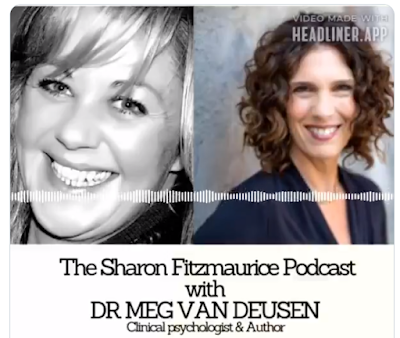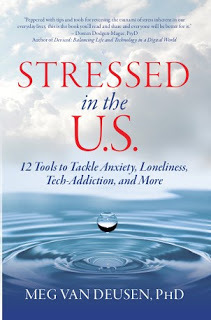Kenneth Atchity's Blog, page 65
February 9, 2021
Virginia Beach author sees characters come to life with graphic novels based on her books

Virginia Beach author Ama Adair just published her second novel in a trilogy about a female CIA operative, titled “Deeper Shadow.” Available on AmazonShe also is turning her first novel, “Shadow Game” into a graphic novel with the help of California-based artist Ray Lopez and Conquest Publishing, a small Virginia-based company that supports aspiring writers and artists. Courtesy of Ama Adair
Writing the second novel in her series about CIA operative Elle Anderson, Ama Adair was determined to highlight the complexities of post-traumatic stress disorder.
Unlike many fictional characters with PTSD, Adair’s heroine doesn’t become violent, alcoholic, homeless or incapacitated by flashbacks. But after being tortured by terrorists, she does struggle to integrate back into her team and complete an undercover operation.
“I don’t shy away from the impact that PTSD can have, even on a very strong and smart woman like Elle,” Adair says. “I’ve felt that impact, my husband has felt it, and several of my close friends have felt it. If you don’t deal with it, it can become very debilitating.”A Virginia Beach resident and Navy chief warrant officer, Adair published “Deeper Shadow” — the sequel to the 2019 thriller “Shadow Game” — in November, under the name A.M. Adair. She hopes to complete the third and final installment of her trilogy, “Shadow War,” by the end of 2021 and also is in the process of turning “Shadow Game” into a graphic novel.
Adair, a counterintelligence and human intelligence specialist, is a veteran of 10 overseas deployments. The idea for “Shadow Game” came to her on a 2010 mission to Iraq, where her convoy had to navigate dark, narrow roads full of abandoned buildings. Anderson, leader of an elite anti-terrorism team, faces some similar physical and emotional challenges as her creator.
Describing herself as a “quintessential nerd,” Adair, 41, wanted to try a graphic novel to reach a wider fan base. She is collaborating with an independent California-based visual artist, Ray Lopez, who she found online.
“Seeing Elle and my other characters come to life on the page is so exciting,” she relates. “The little kid in me can’t stop jumping up and down.”

Pictured is concept art from Ama Adair’s upcoming graphic novel. Courtesy of Ama Adair
Adair also is working with Conquest Publishing, a small press imprint in Virginia that offers mentorship programs for new authors. Conquest board member John Millington, a retired Navy chief, is a partner in Jersey’s Cards & Comics stores, which likely will display Adair’s graphic novel in its Hampton, Hayes and Yorktown locations.
“Her story has an incredible pace and tempo, along with a strong individual character who is going through a lot,” Millington says. “My job is to help people with talent and potential get a foot in the door and just be noticed.”
To adapt the 300-page “Shadow Game” into a graphic novel of about 100 pages, Adair has been paring down dialogue, changing a few plot sequences to improve flow and focusing more on key action sequences.
 Pictured is a sample page from Ama Adair’s upcoming graphic novel. Courtesy of Ama Adair
Pictured is a sample page from Ama Adair’s upcoming graphic novel. Courtesy of Ama AdairAdair hopes the graphic novel will be out by May, in time to attend that month’s Tidewater Comicon in Virginia Beach as well as the Hampton Comicon in October. Ultimately, she would like to turn all three books into graphic novels.
Once the trilogy is finished, Adair’s agent plans to pitch the story to film agencies. The author’s dream actress to play Elle Anderson: Swedish actress Alicia Vikander, star of the biographical romantic drama “The Danish Girl” and the science-fiction thriller “Ex Machina”.
An Ohio native, Adair joined the Navy shortly after the 9/11 attacks and has lived in Virginia Beach since 2005. She and her husband Jake, an active-duty Navy chief, have two children, Arya, 8, and Finn, 1.
Between a full-time job, family responsibilities and the COVID-19 pandemic, Adair often had to write in short spurts during naptimes or after her kids went to bed. After she and her husband retire from the Navy in October 2022, she plans to dive into publishing spinoffs of her trilogy.
“It will be some of the same characters, but with totally different stories,” she says. “I can’t wait to see where they take me.”
Read more: Alison Johnson, ajohnsondp@yahoo.com

February 5, 2021
Ken's Weekly Book Recommendation: Sell Your Story to Hollywood!
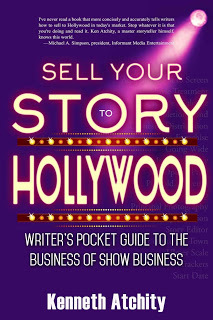
Available on Amazon

February 4, 2021
WGA BULLETIN: Where Are We Now? By Dennis Palumbo Author of the Daniel Rinaldi Mysteries
Psychotherapist Dennis Palumbo gives an update on how writers are adapting after 10 months of staying safer-at-home.
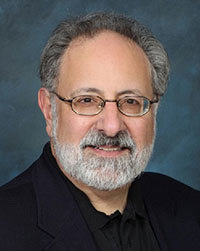
Here’s a question I’ve been asked recently:
“Now that we’ve lived through more of the pandemic, do you see a shift in how your therapy patients are coping?”
My answer: Yes and no.
Yes, in terms of a shift in responses among my writer patients, though it ranges all over the place. Some patients seem to have a kind of resignation to the fact that we don’t know how, or if, this lockdown will end. For these patients, this has meant a deeper hunkering down. Unhappy but resolved to hang on for the duration, they also report that since their initial stunned reaction to the pandemic has faded, they’re better able to focus on writing. It seems to help if they have contracted deals to work on projects, but even those working on specs report being more focused.
Other patients, encouraged by the news of the various vaccines, are feeling more upbeat than they have in months. There’s an end in sight, they believe, so their overall mood has lightened. Again, and more expectedly, their ability to focus on their writing has risen as well.
One important point: whether patients are accepting of an indefinite timeline for the lockdown, or else see it as ending soon, the effect on their families vary widely. Marital tensions, issues around virtual schooling for their children, and financial worries provide the context in which each individual writer has to work. And, therefore, the stresses of these various contexts are different for each household.
But what about those patients whose feelings and attitudes haven’t changed much since the lockdown began? Usually, since March, their general reaction has been anger, fear or frustration—or some combination of the above. The length of the pandemic and its restrictions hasn’t changed their reactions. Even the promise of a vaccine has done little to cause a shift in their feelings.
Why not? Remember, each of us lives in our individual subjective world, formed by a combination of our childhood experiences (which help mold our personal mythology about how life works), filtered through our firmly-held intellectual beliefs of how life works, and the personal and professional events in our adult lives. To put it bluntly, people tending toward pessimism or holding a dark view of the future see in the pandemic a confirmation of their worst fears. As one of my writer patients said when a long-fought-for project was scuttled once the pandemic hit, “See, I was waiting for the other shoe to drop... and now it has.”
If, however, a patient tends to be more optimistic (admittedly, for a therapist who treats Hollywood creative types, these kinds of patients are rare), the pandemic has been seen since it started as an opportunity to just write, unburdened by the other tedious obligations of their show business careers.
Then there’s a third category: writer patients who’ve complained in therapy over the years about never having had an extended period of time to work on their dream project—that big, special, personal script or play or novel that they just can’t get to because of their daily paying writing gigs. Yet when forced into staying home, suddenly having uncounted hours of free time, they were so psychologically impacted by the pandemic that they were unable to write. Anything.
Which brings me back to the initial question, and my somewhat meandering answer: while some patients’ attitudes—their fears and hopes and beliefs—have shifted, there are an equal number who feel the same frustrations and fears for themselves and loved ones that they’ve expressed in therapy since the pandemic began.
As in all aspects of clinical work with patients, there is no one-size-fits-all model for providing therapy. As the context of our lives changes, so do our emotional responses.
So my only advice is to try to live embedded in the moment, day by day, and resist feeding yourself catastrophic meanings about what the future holds.
Because if the year 2020 has shown us nothing else, it’s that predicting the future is a fool’s game.
For three decades, Palumbo has been a licensed psychotherapist for working writers and others in creative fields. To the therapy setting Palumbo brings his own experience as a sitcom writer, screenwriter, and, more recently, crime novelist (2018’s Head Wounds is the fifth installment in his Daniel Rinaldi series). Palumbo’s non-fiction book Writing from the Inside Out (2000) was an adaptation and expansion of his regular columns for Written By.
Connect spoke to Palumbo in May 2020 about recurring themes in his therapy practice among writers who were under extended stay-at-home orders and grappling with an entertainment industry on indefinite pause.

February 2, 2021
Congratulations, NOVE! Knock ‘em dead!
Bringing the ‘magic behind the turntables’: Incoming MBE hosts Anthony Valadez and Novena Carmel share music picks

Anthony Valadez and Novena Carmel are MBE’s new co-hosts. “We want to make sure that our magic translates through KCRW because this is a new adventure for us. We want to make sure that our humor comes across well, and also the magic behind the turntables in what we do,” says Valadez.Photo by Larry Hirshowitz/KCRW.
KCRW’s flagship morning music program, Morning Becomes Eclectic, is about to get two new hosts: Novena Carmel and Anthony Valadez. It’s a first for MBE, which has been around for more than 40 years and has become an integral part of LA’s music scene. As a DJ, Carmel aims to bring her go-with-the-flow vibe to MBE, and plans to create a smooth listening experience for KCRW audiences.Read more
Listen to their interview below:

January 29, 2021
Library Way New York City
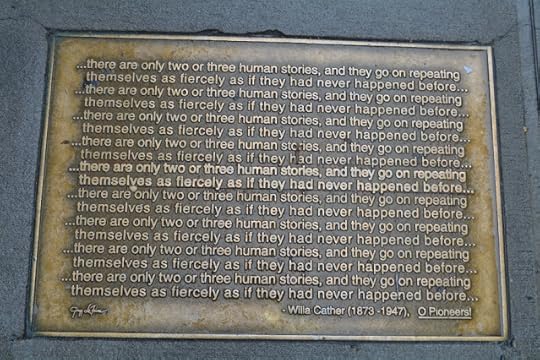
While walking to New York Public Library on East 41st Street in New York City, pedestrians are treated to literary-themed images inset along the sidewalk. The 96 illustrated bronze plaques depict various quotes from favourite authors and other notable figures.
Gregg LeFevre designed 48 unique images, duplicated to make 96 plaques, to be placed along both sides of the street so everyone has a chance to see them.

January 28, 2021
Dr. Meg Van Deusen Discusses Stressed in the U.S. and How to Build Up Resilience to Stress on The Sharon Fitzmaurice Podcast
January 27, 2021
World Class Performer: Short Life Lessons From Ken Atchity

Ken Atchity is a producer, author and columnist, book reviewer, brand consultant, and professor of comparative literature. He is the owner of Story Merchant, a strategic career consulting for writers and Hollywood liaison for out-of-Hollywood production companies. Atchity’s goal is to take our storyteller clients from ambition and vision to professional success in all media.
Where did you grow up and what was your childhood like? Did you have any particular experiences/stories that shaped your adult life?
I grew up between Louisiana and Kansas City, among joke-tellers and story-tellers; was educated by Jesuits in high school and college that taught me an insatiable love of learning, the discipline that provides a lifetime infrastructure for achievement, and ‘ad astra per aspera’, to the stars through obstacles—that taught me to set my aspirations high because you’ll never test your limits without exceeding them
My grandfather, an immigrant from Lebanon, always told me: “Honey, in this country there’s no penalty for failure!” I learned wisdom from him and cooking from my grandmothers, Cajun and Lebanese
What is something you wish you would’ve realized earlier in your life?
I wish I’d always had more confidence in myself.
I wish I’d congratulated myself more. Only in the last ten years have I learned to say, “Nice shot, Ken.” I spent too many years beating myself up.
That change is good. Life is change.
That it was okay to be tired. I used to think being tired was the end of the world, and that I couldn’t function when I’m tired. I felt liberated when I realized, it’s okay to be tired. You can still move forward.
Once you’ve gotten through enough ‘dark nights of the soul,’ I finally came to realize you will get through this one too.
I also learned that, instead of tossing and turning with dark and disturbing thoughts, just get out of bed and do something to move the ball forward.
You don’t have time to agonize if you’re busy.
What are bad recommendations you hear in your profession or area of expertise?
“You only get one shot.” Patently ridiculous. You get exactly as many shots as you’re willing to take. I once heard a guru answer a follower’s question, “But, master, how many times can I pick myself up?” with: “Sister, you how many times can you fall?
You’re only as good as you’re last project. Nonsense: You’re only as good as your next project.
Tell me about one of the darker periods you’ve experienced in life. How you came out of it and what you learned from it?
Time after time, especially in changing careers from being a tenured professor to being an entertainment entrepreneur (focusing on acquiring, developing, marketing, selling, publishing, and producing stories, including blockbuster movies like The Meg and nearly 20 New York Times Bestsellers like Meg, The Kennedy Detail, and Dracula: The Un-Dead), I’ve painted myself into corners from which continuing until you succeed is the only way out. Instead of dreading them, I’ve learned to love corners.
What is one thing that you do that you feel has been the biggest contributor to your success so far?
Persistence.
Doing more, and thinking less.
“Not minding what happens,” to quote Eckart Tolle.
Doing what I LOVE.
What is your morning routine?
I get up at 4 or 5, making sure I’m there to greet the sun.
I spent an hour reading and sipping coffee.
I make sure I write at least two hours every day, preferably in the a.m.
What habit or behavior that you have pursued for a few years has most improved your life?
As soon as I get up in the morning, I think about what I can look forward to throughout the day or at least in the evening.
If there isn’t anything, I immediately plan something to look forward to: dinner out, a walk, a postponed errand.
Then I proceed into the day’s challenges, knowing I’ve got something to look forward to.
What are your strategies for being productive and using your time most efficiently?
Although I’ve written books about time-management (like A Writer’s Time and How to Quit Your Day Job and Live Out Your Dreams), the most important thing I’ve learned and teach is that the best way to “find more time” is to stealit. How? By using a stopwatch (or several of them) and promising yourself you won’t end the day without putting at least an hour, say, or more or less you’re your most important projects not on the wall clock, or your wristwatch, but on a stopwatch which you turn ON when you’re working on the project and turn OFF when you’re not.
No waiting! Waiting is my least favorite thing to do, so I make sure I’m NEVER waiting. When a particular project is in someone else’s court so I’m waiting for it, I simply turn to another project, or two, or three. So I’m always using my time to move things forward until the ball is back in my court.
What book(s) have influenced your life the most? Why?
The Odyssey by Homer—my primary personal myth is that of a man who travels the world thriving on storytelling. I learned Homeric Greek to read it in the original in Jesuit high school and return to it in my thoughts nearly every day.
Do What You Love, the Money Will Follow by Marsha Sinetar—The profound observation that doing what you love is the key to happiness, and that money will come from your determination to stick to that.
Moby Dick by Herman Melville—“To write a mighty book you must have a mighty theme.” Get to the point in your life, as soon as you can, of making only big plans once you’ve proven to yourself you can accomplish smaller plans.
Do you have any quotes you live by or think of often?
“The universe is made, not of atoms, but of stories.” — Muriel Ruksmeyer
“Before enlightenment, chop wood, carry water. After enlightenment, chop wood, carry water.” — Zen koan
“I think the only immoral thing is for a being not to live every instant of its life with the utmost intensity.” — Jose Ortega y Gasset
“There’s nothing wrong with retirement as long as it does not interfere with a man’s work.” — Benjamin Franklin
Read more World Class Performer

January 26, 2021
"I make it a regular practice to reach for my pen & n...
"I make it a regular practice to reach for my pen & notebook immediately upon waking. The words that spill out establish a bridge between two otherwise disparate states."
~Peter Wortsman
Via Kenneth Atchity (Dreamworks Magazine)


January 25, 2021
Getting Your Story Straight: Multiple POV
Professional coaching tips to help you figure out point of view, structure, and master all the elements of story.Learn more @ thewriterslifeline.comFollow Ken's series on IGTV @storymerchantFacebook @thestorymerchant

World Class Performer: Short Life Lessons From Ken Atchity

Ken Atchity is a producer, author and columnist, book reviewer, brand consultant, and professor of comparative literature. He is the owner of Story Merchant, a strategic career consulting for writers and Hollywood liaison for out-of-Hollywood production companies. Atchity’s goal is to take our storyteller clients from ambition and vision to professional success in all media.
Where did you grow up and what was your childhood like? Did you have any particular experiences/stories that shaped your adult life?
I grew up between Louisiana and Kansas City, among joke-tellers and story-tellers; was educated by Jesuits in high school and college that taught me an insatiable love of learning, the discipline that provides a lifetime infrastructure for achievement, and ‘ad astra per aspera’, to the stars through obstacles—that taught me to set my aspirations high because you’ll never test your limits without exceeding them
My grandfather, an immigrant from Lebanon, always told me: “Honey, in this country there’s no penalty for failure!” I learned wisdom from him and cooking from my grandmothers, Cajun and Lebanese
What is something you wish you would’ve realized earlier in your life?
I wish I’d always had more confidence in myself.
I wish I’d congratulated myself more. Only in the last ten years have I learned to say, “Nice shot, Ken.” I spent too many years beating myself up.
That change is good. Life is change.
That it was okay to be tired. I used to think being tired was the end of the world, and that I couldn’t function when I’m tired. I felt liberated when I realized, it’s okay to be tired. You can still move forward.
Once you’ve gotten through enough ‘dark nights of the soul,’ I finally came to realize you will get through this one too.
I also learned that, instead of tossing and turning with dark and disturbing thoughts, just get out of bed and do something to move the ball forward.
You don’t have time to agonize if you’re busy.
What are bad recommendations you hear in your profession or area of expertise?
“You only get one shot.” Patently ridiculous. You get exactly as many shots as you’re willing to take. I once heard a guru answer a follower’s question, “But, master, how many times can I pick myself up?” with: “Sister, you how many times can you fall?
You’re only as good as you’re last project. Nonsense: You’re only as good as your next project.
Tell me about one of the darker periods you’ve experienced in life. How you came out of it and what you learned from it?
Time after time, especially in changing careers from being a tenured professor to being an entertainment entrepreneur (focusing on acquiring, developing, marketing, selling, publishing, and producing stories, including blockbuster movies like The Meg and nearly 20 New York Times Bestsellers like Meg, The Kennedy Detail, and Dracula: The Un-Dead), I’ve painted myself into corners from which continuing until you succeed is the only way out. Instead of dreading them, I’ve learned to love corners.
What is one thing that you do that you feel has been the biggest contributor to your success so far?
Persistence.
Doing more, and thinking less.
“Not minding what happens,” to quote Eckart Tolle.
Doing what I LOVE.
What is your morning routine?
I get up at 4 or 5, making sure I’m there to greet the sun.
I spent an hour reading and sipping coffee.
I make sure I write at least two hours every day, preferably in the a.m.
What habit or behavior that you have pursued for a few years has most improved your life?
As soon as I get up in the morning, I think about what I can look forward to throughout the day or at least in the evening.
If there isn’t anything, I immediately plan something to look forward to: dinner out, a walk, a postponed errand.
Then I proceed into the day’s challenges, knowing I’ve got something to look forward to.
What are your strategies for being productive and using your time most efficiently?
Although I’ve written books about time-management (like A Writer’s Time and How to Quit Your Day Job and Live Out Your Dreams), the most important thing I’ve learned and teach is that the best way to “find more time” is to stealit. How? By using a stopwatch (or several of them) and promising yourself you won’t end the day without putting at least an hour, say, or more or less you’re your most important projects not on the wall clock, or your wristwatch, but on a stopwatch which you turn ON when you’re working on the project and turn OFF when you’re not.
No waiting! Waiting is my least favorite thing to do, so I make sure I’m NEVER waiting. When a particular project is in someone else’s court so I’m waiting for it, I simply turn to another project, or two, or three. So I’m always using my time to move things forward until the ball is back in my court.
What book(s) have influenced your life the most? Why?
The Odyssey by Homer—my primary personal myth is that of a man who travels the world thriving on storytelling. I learned Homeric Greek to read it in the original in Jesuit high school and return to it in my thoughts nearly every day.
Do What You Love, the Money Will Follow by Marsha Sinetar—The profound observation that doing what you love is the key to happiness, and that money will come from your determination to stick to that.
Moby Dick by Herman Melville—“To write a mighty book you must have a mighty theme.” Get to the point in your life, as soon as you can, of making only big plans once you’ve proven to yourself you can accomplish smaller plans.
Do you have any quotes you live by or think of often?
“The universe is made, not of atoms, but of stories.” — Muriel Ruksmeyer
“Before enlightenment, chop wood, carry water. After enlightenment, chop wood, carry water.” — Zen koan
“I think the only immoral thing is for a being not to live every instant of its life with the utmost intensity.” — Jose Ortega y Gasset
“There’s nothing wrong with retirement as long as it does not interfere with a man’s work.” — Benjamin Franklin
Read more World Class Performer



